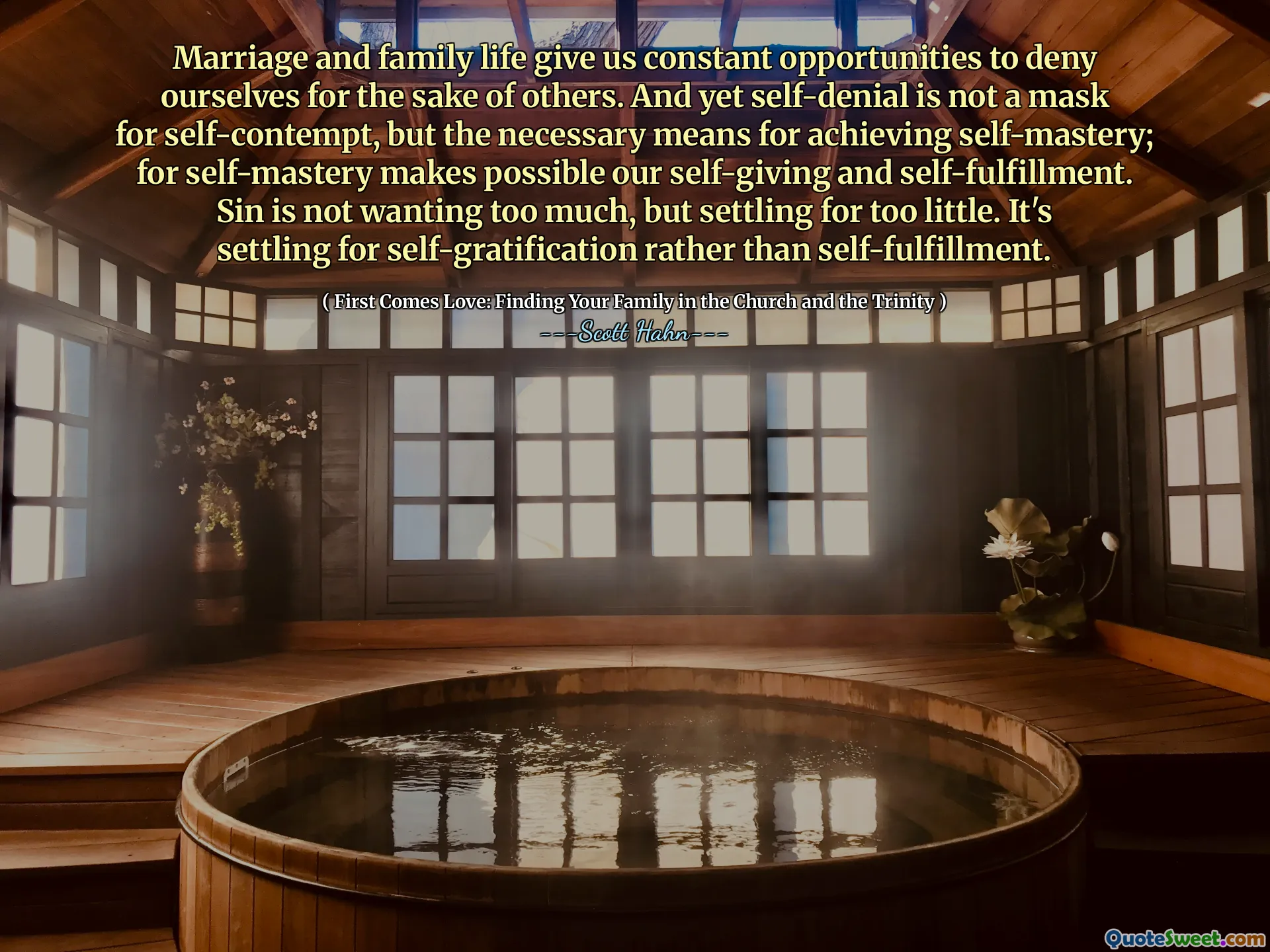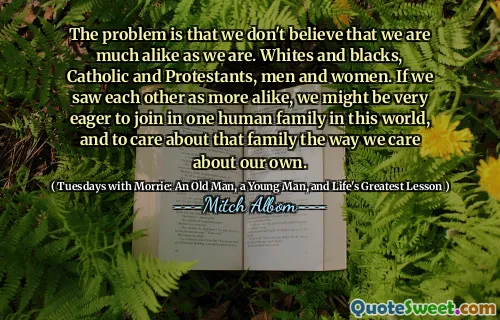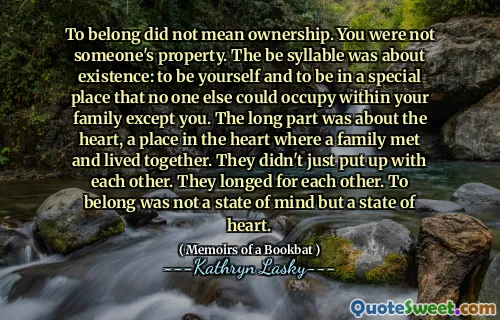
Marriage and family life give us constant opportunities to deny ourselves for the sake of others. And yet self-denial is not a mask for self-contempt, but the necessary means for achieving self-mastery; for self-mastery makes possible our self-giving and self-fulfillment. Sin is not wanting too much, but settling for too little. It's settling for self-gratification rather than self-fulfillment.
This quote eloquently underscores the profound nature of marriage and family life as fertile grounds for personal growth through self-denial. In a culture often driven by instant gratification and individualism, the call to deny oneself may seem counterintuitive or even harsh. However, as the quote suggests, true self-mastery emerges not from indulgence but from disciplined giving, especially within the context of close relationships. Denying oneself for the sake of others—whether in everyday sacrifices or ongoing commitments—serves as a transformative process, fostering deep self-awareness and compassion. This act of self-denial is not rooted in self-contempt or a negative self-view; rather, it becomes an affirmation of self-control that leads to authentic self-giving and fulfillment. When we settle for self-gratification, we neglect the deeper purpose of our existence—to love and serve others in a meaningful way. Sin, as mentioned, is not merely desiring too much but rather settling for less when we could pursue higher, more meaningful fulfillment. Thus, resisting superficial desires in favor of pursuing genuine self-fulfillment through love and self-mastery aligns with a higher purpose, ultimately leading to a more profound sense of happiness and purpose. Recognizing this truth invites us to embrace the challenges and sacrifices inherent in relationships, understanding that these moments of self-denial are integral steps toward becoming whole, generous beings nourishing ourselves and others through love.






